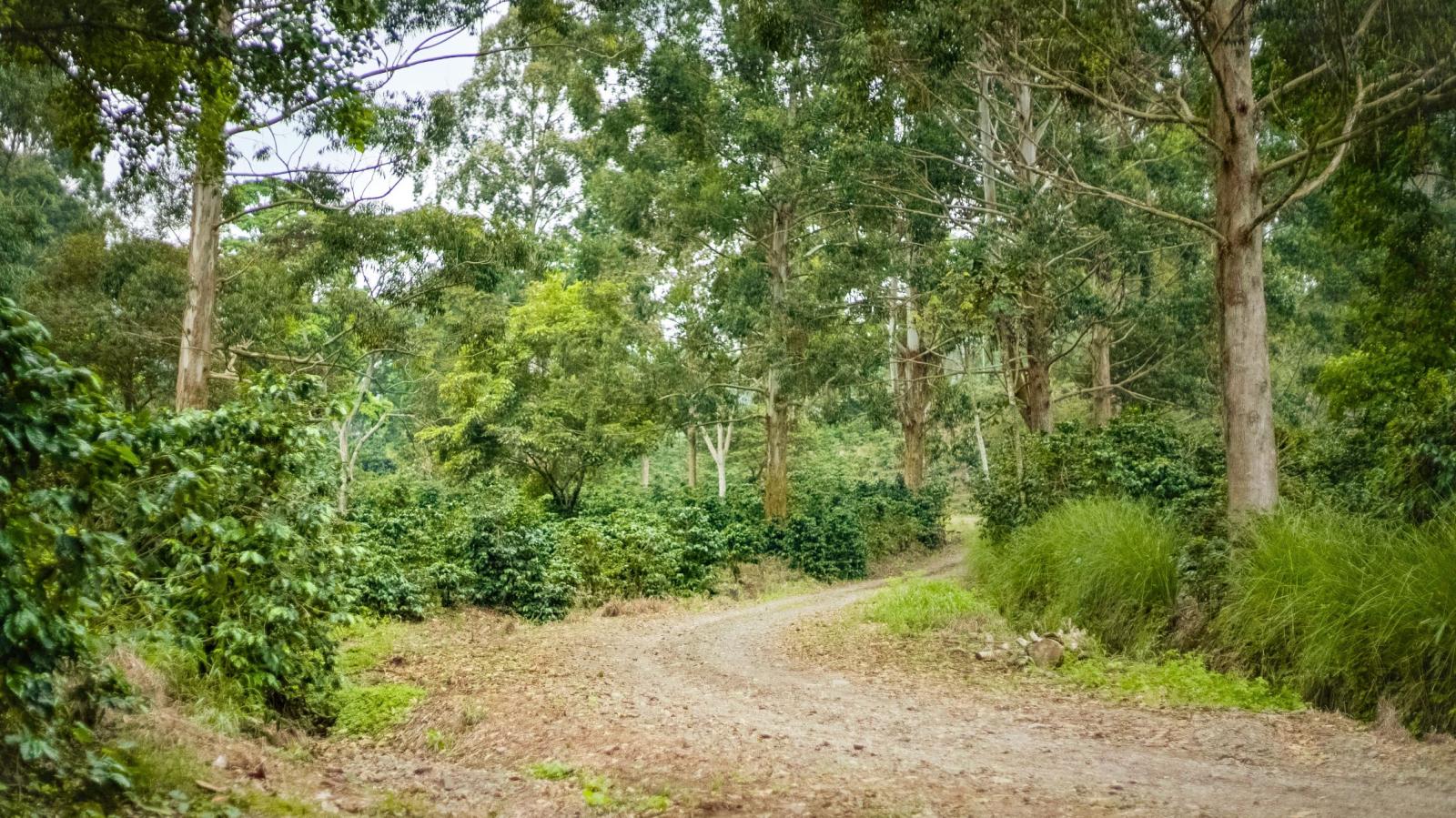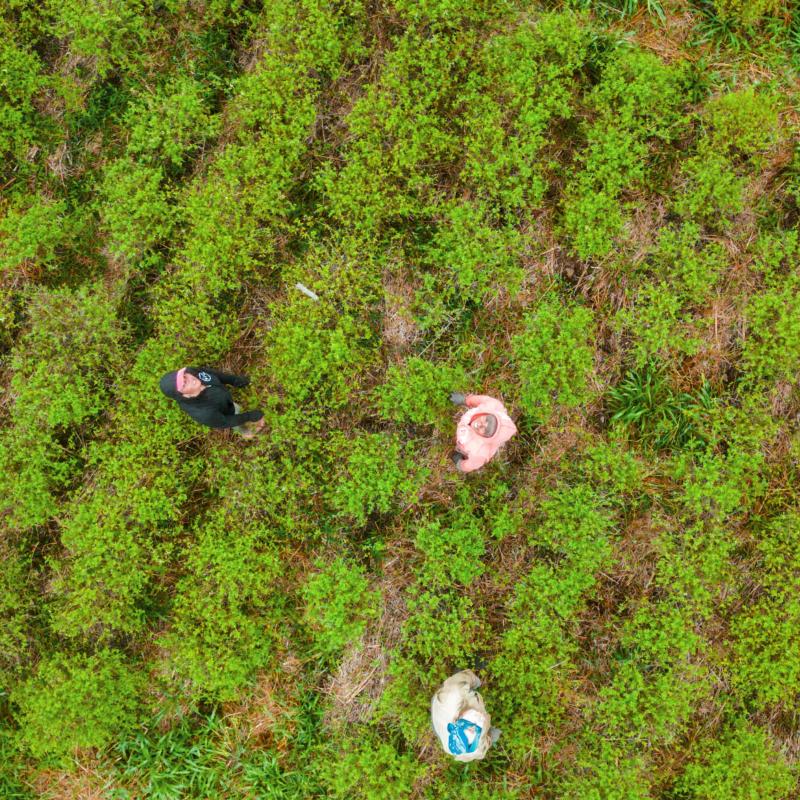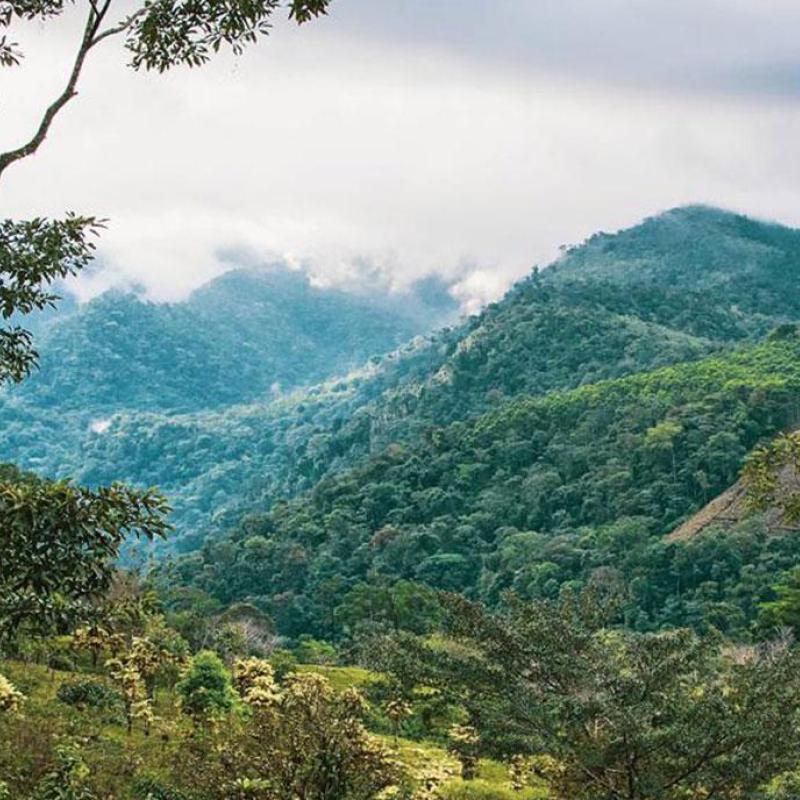Nationally determined contributions (NDCs) are the centrepiece of the 2015 Paris Agreement on climate change. NDCs define climate targets that are binding under international law, and to help achieve these, GIZ assists countries around the world in meeting their commitments.
 Soren Pessoa
Soren Pessoa
‘Nature conservation and environmental protection are taken seriously here’
Costa Rica is Germany’s ally on climate issues. Ahead of the COP28 UN Climate Change Conference, we talk to Andreas Villar, coordinator of the GIZ Climate and Biodiversity Cluster in Costa Rica.
Mr Villar, how ambitious is Costa Rica when it comes to decarbonisation?
Costa Rica was quick to adopt nationally determined contributions (NDCs) that are unparalleled internationally. Its aim is to achieve net zero emissions by 2050. The country’s National Development Plan also includes the goal of industrial decarbonisation. This plan links economic development with environmental and social dimensions in line with the fundamental principles of sustainable development. At the international level, Costa Rica is regarded as an ally in advancing initiatives. The German Government in particular considers the country to be an important partner on climate issues. Costa Rica is seen as a kind of testing ground for what could be a completely decarbonised economy.
Is the country a pioneer on climate action in general?
Costa Rica has set itself very ambitious environment and energy policy goals since the 1980s and is committed to sustainability. Conservation regions account for one quarter of its surface area, and half of Costa Rica in total is protected by various conservation concepts. More than half of the country is covered in forest as a result of major reforestation programmes. Over 90 per cent of Costa Rica’s electricity comes from renewable sources, mainly hydropower, but also wind power, photovoltaics and geothermal energy, making the country a global pioneer in this respect. It is also leading the way in the transition to e-mobility in the transport sector. Environmental protection and nature conservation are taken seriously and integrated into all policy areas. In May 2020, the government also launched the ‘Costa Rica + Natura’ initiative, placing biodiversity at the heart of the Costa Rican development model.
Can a country as small as Costa Rica really be a role model for other large countries? To what extent can the model be exported?
A lot depends on the political and economic contexts in the country in question, but if green hydrogen can be produced in a pilot project here, then it can also be produced in India or Brazil. It could then be used in industry and transport there. Costa Rica has positioned itself as a key actor on environmental, biodiversity and climate issues in the region and on the international stage. The approaches and experiences of this small country are being closely observed regionally and internationally. The question is: how can we successfully manage the complete transformation to climate-friendly economic and social models? This is a significant area of ongoing global research, and Costa Rica can serve as a role model in addressing this challenge.
 GIZ
GIZ
Andreas Villar is the coordinator of the GIZ Climate and Biodiversity Cluster in Costa Rica. He has been engaged in climate and environmental issues in Latin America for more than 15 years.
‘Costa Rica links economic development with environmental and social dimensions in line with the fundamental principles of sustainable development.’
 Soren Pessoa
Soren Pessoa
Why is coffee so important in a climate context in Costa Rica?
Costa Rica has been synonymous with coffee since the 19th century. The country is closely associated with coffee worldwide. The significance of coffee is heightened by the fact that the Costa Rican agricultural sector as a whole accounts for 20 per cent of the country’s greenhouse gas emissions. We have been actively involved in exploring ways to reduce emissions along the entire production chain. For example, we have helped coffee farmers make the transition to organic fertilisers, and recommended that trees be planted to provide shade and nutrients. There are also opportunities to reduce emissions in the further processing of coffee – in washing and hulling beans. These processes require a great deal of energy and water. GIZ has supported the development of financing models that facilitate the transition to more efficient and energy-saving systems.
How has GIZ helped Costa Rica to prepare for COP28?
We are offering delegation members a briefing on the main topics to be negotiated at COP that are especially relevant to Costa Rica. These events have been well received. We are also providing year-long training for around 20 young Costa Ricans who are interested and involved in climate issues, the idea being to encourage young people to put forward their ideas on climate action. This programme is supported by GIZ in conjunction with the Costa Rican Ministry of Foreign Affairs, Al Gore’s Climate Reality Project, UNICEF and other national and international actors. The two most committed young people will be invited to COP as part of the official Costa Rican delegation. The project is active in seven Central American countries in addition to Costa Rica.


